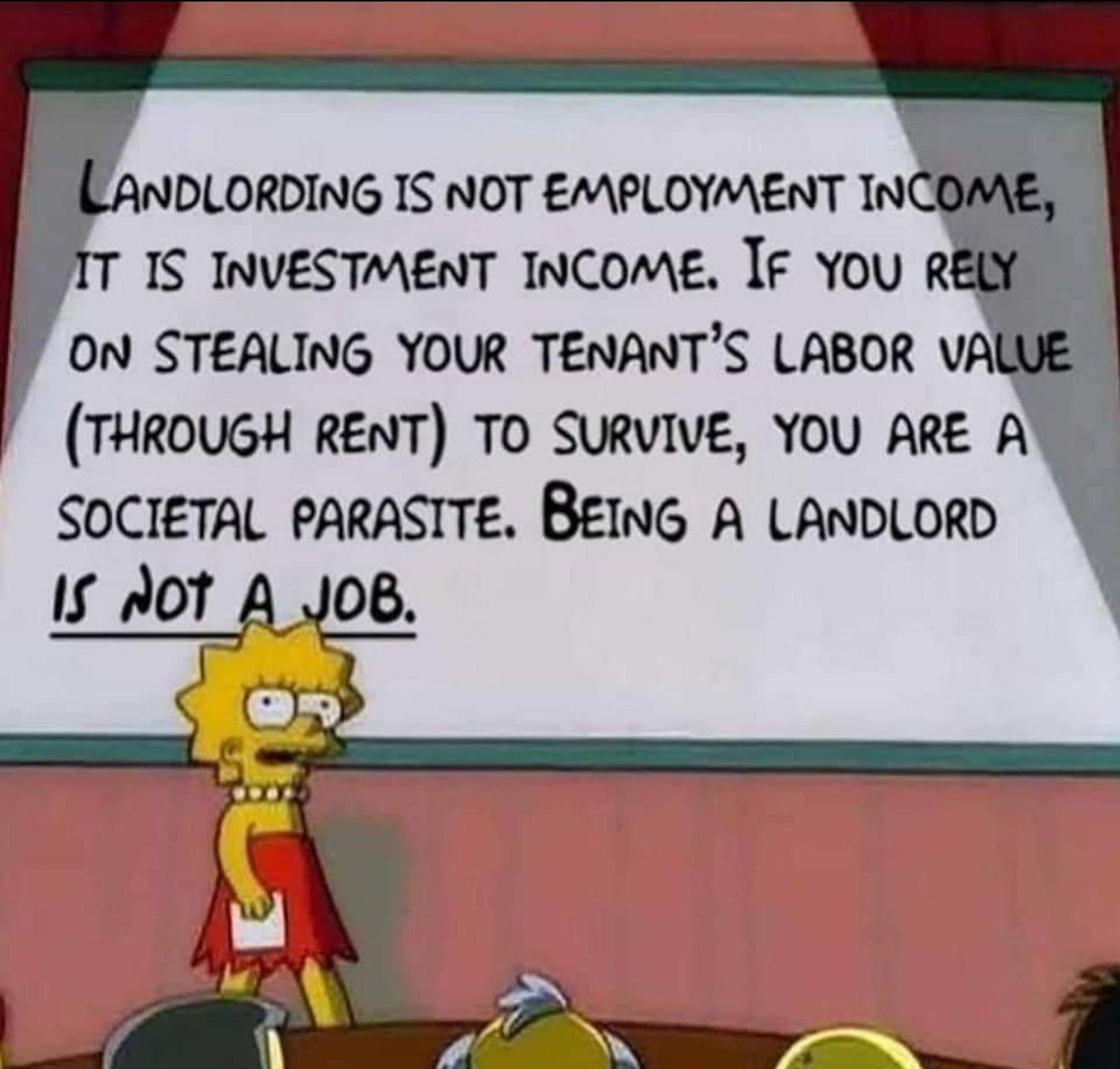this post was submitted on 22 Apr 2024
1029 points (81.4% liked)
A Boring Dystopia
9781 readers
141 users here now
Pictures, Videos, Articles showing just how boring it is to live in a dystopic society, or with signs of a dystopic society.
Rules (Subject to Change)
--Be a Decent Human Being
--Posting news articles: include the source name and exact title from article in your post title
--If a picture is just a screenshot of an article, link the article
--If a video's content isn't clear from title, write a short summary so people know what it's about.
--Posts must have something to do with the topic
--Zero tolerance for Racism/Sexism/Ableism/etc.
--No NSFW content
--Abide by the rules of lemmy.world
founded 1 year ago
MODERATORS
you are viewing a single comment's thread
view the rest of the comments
view the rest of the comments

In this particular highly-niche scenario, he's got housing stock that he's letting at-cost to people who would otherwise be somewhere else in the housing market. So its a push.
The "speculative investors removing housing stock to drive up costs" folks tend to be corporately owned and industry coordinated properties that deliberately keep units open above the clearing rate, in hopes of driving up the prevailing cost of new housing.
He's not saint. He's just a guy who is giving close personal friends a place to live at-cost. Which would be fine, if this kind of service was available to everyone. Its just that he doesn't have enough friends or enough units to clear the national backlog.
This is dependant on the market (the post didn't say where they are), but I understand is true in the US.
In Australia, the speculation is driven by individuals who get incredible tax incentives if their income is above a certain level. Because of this, the housing market is distorted to the point where housing values are detached from rent potential, with all the value being driven by capital gains and tax offsets. This further leads to a situation where it's often more economically viable to leave a house empty (and therefore not have to maintain the property or deal with tenants) while the value grows and the tax is written down.
Functionally what happened in East Asia, with "Investment Property" glut leading to the Evergrande bankruptcy, the current Seoul real estate bubble, and the 1990s Chiyoda-ku bubble which valued downtown Tokyo at a higher price than the entire nation of Canada.
Housing reform has been on the menu across the Pacific Rim for decades, thanks to the bid-price of land wildly outpacing its utility value.